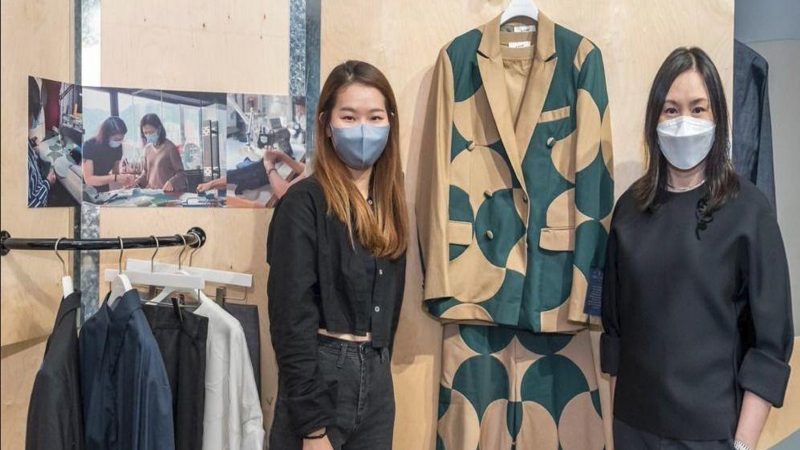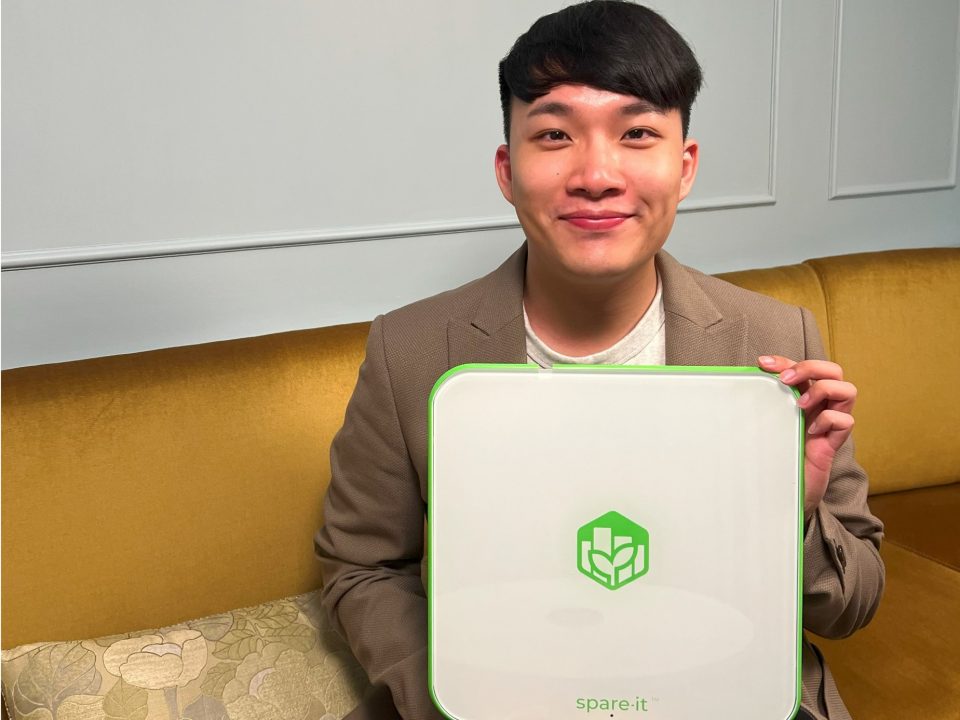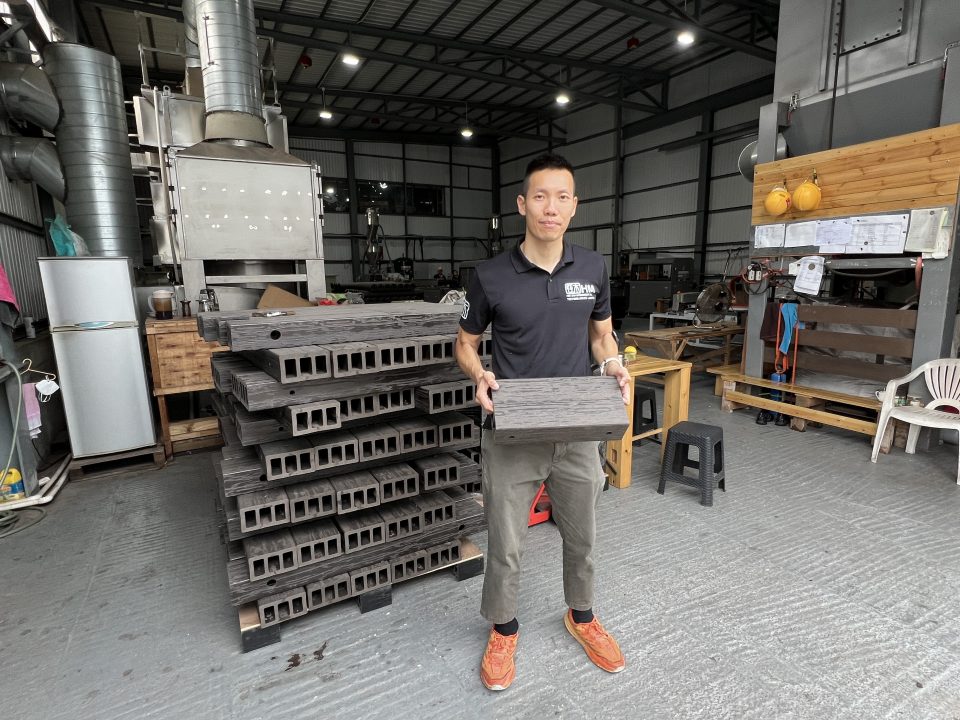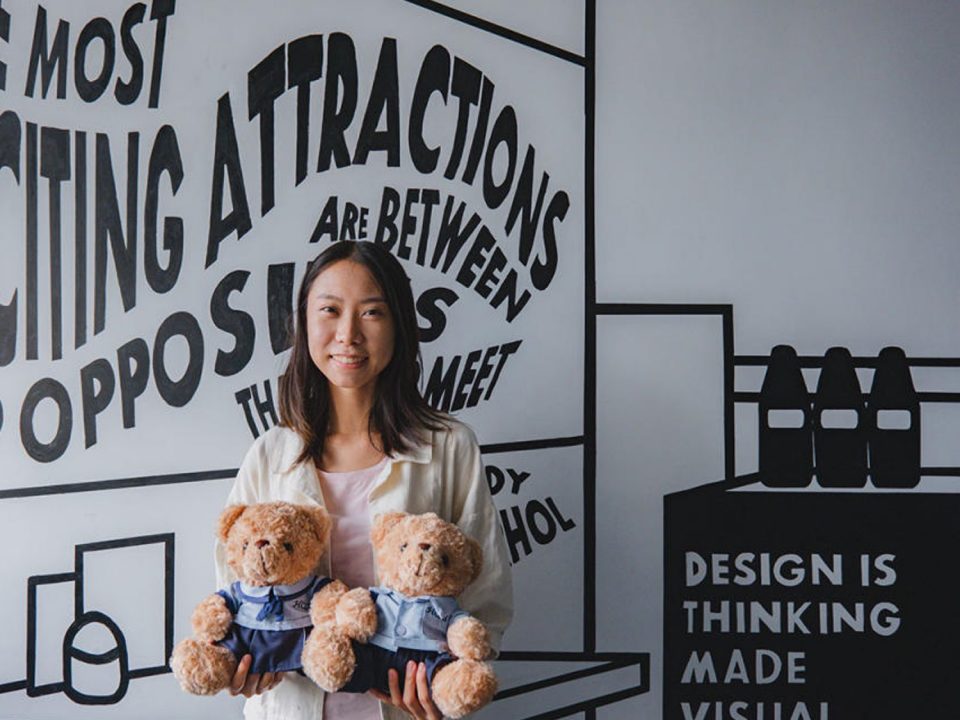
ARTA Architects: Communicating through works – Thoughts on architecture that highlight community engagement
January 18, 2023
Tony Ip Green Architect Limited: Building Community and Corporate Culture through Green Architecture
October 20, 2023V Visionary: Reforming the Fashion Industry from Materials to Values
“To many, fashion is superficial and frivolous. But if anyone asks, there is so much we can add to the sustainability aspects of the industry.” Said Vickie Au, Founder and Creative Director of V Visionary, in front of her new collection made of recycled European premium fabrics.
A keen environmental activist championing the value of community engagement, Vickie founded her own design studio in 2018 after working with numerous renowned brands for 20 years, to offer customised sustainable and ethical products and design consultancy. She was once at a crossroads – either leaving the industry for good or pursuing her passion for sustainability. At the end of the day, fashion is the second most polluting industry globally and has a bad reputation for over-production and labour exploitation. But soon after she realized her knowledge and connections can be put to good use in moving the needle in the industry’s sustainability transformation.
| Founded in 2018 by Vickie Au, V Visionary is a fashion design consultancy company providing services such as corporate uniform design and production with the mission of “Fashion for Social Good”, and targeting large corporates as their main clientele. In 2019, Vickie established the award-winning brand V VISSI:revisit, which focuses on “sustainability”, “innovation” and “social inclusion”. She works with yarn and fabric factories alongside different stakeholders to develop sustainable fashion. Her work has been recognized by a number of international design awards. In 2020, Vickie launched the “Look Cool Do Good” initiative—a community co-creation programme supported by the Social Innovation and Entrepreneurship Development Fund (SIE Fund)—which offers free training to empower low-income women, factory workers, and retired tailors. Vickie has striven to place technological innovation, environmental sustainability and social inclusion at the heart of her company’s operation model, which echoes the global sustainability agenda including SDG 12 “Sustainable consumption and production” and SDG 9 “Industry, Innovation and Infrastructure”. |
Connecting the dots between industry partners, corporates and community
[Customer Supplier Relationship]
Since establishing V Visionary in 2018, Vickie has been leading the team to explore their own way of creating sustainable fashion. To Vickie, the missing link in the value chain is one of the reasons for causing the huge amount of waste. “For instance, there are fabric samples from the factories; it might cost thousands of dollars for a yard, and you can easily collect a few boxes of these materials, but no one ever thinks of recycling them.”
“From cotton growing, yarn manufacturing, fabric manufacturing, dyeing & finishing, design to sales, marketing and finally the customers, the fashion industry is a complex web of interests involving countless stakeholders.” You will need someone like Vickie, who fathoms the industry like no other, to bridge the gap between the stakeholders. Therefore, in order to weave together industry partners, corporates and community members, the business moves strategically in three directions: within the industry, attracting like-minded merchandisers through trade shows, and reaching out to manufacturers with the same sustainability values to try out new fabrics and technology; out to the commercial world, pitching different sustainable fashion solutions to corporates and bringing in new collaborating partners and formats, so that these values are incorporated at consumer-facing events; to the society, working with NGOs, retired women and design students, to nurture more sustainability advocates in the society.
The result of these initiatives for Vickie is that her sustainable designs had won a few international design awards. The first award recognized the design she created from upcycling the fabric samples, it was well-received by buyers and many showed interest in placing orders, however, it was put on hold due to the pandemic. Vickie didn’t stop there, she reached out to large corporates and provided sustainable fashion solutions instead, “In fact, the first purchase order is recreating a corporate uniform. Durability is of the highest concern when it comes to uniforms, and the order size is usually massive. This gives me more bargaining power with the manufacturers in choosing the fabric and technology, because they also need a big enough order to justify the investment in new technologies and machines. Many designers think uniform design is dull, but within a reasonable budget, many corporates are supportive of sustainable fabrics. So, isn’t this what I want to do to move fashion forward in a sustainable way?” Vickie shared.
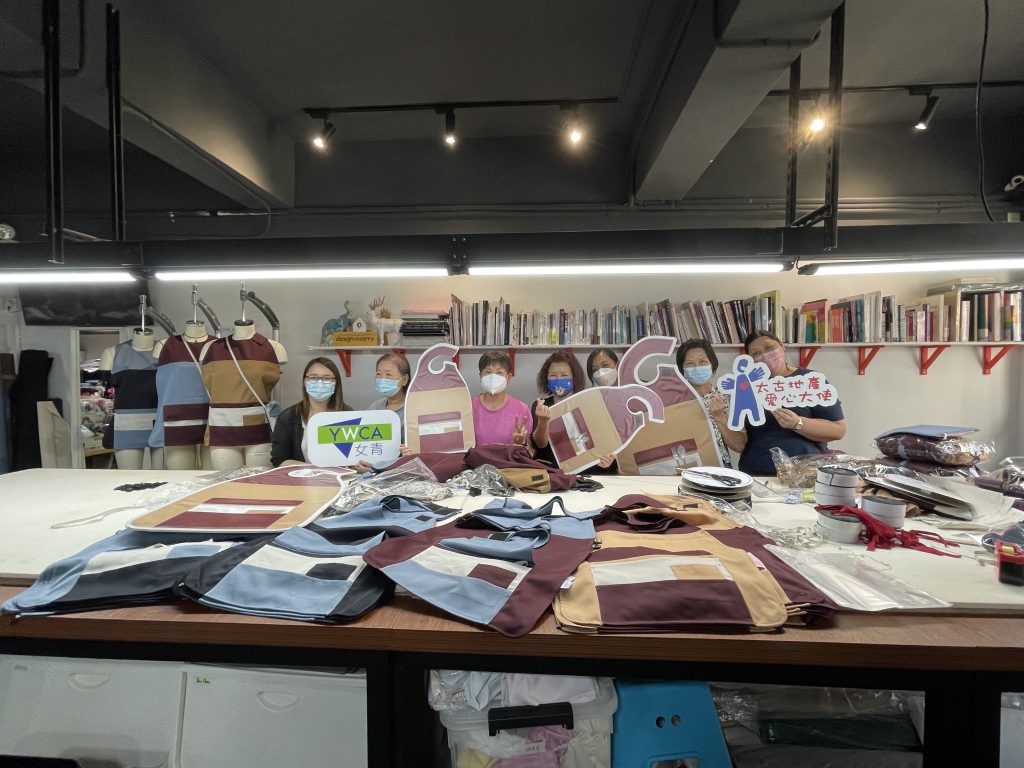
Passing on knowledge to seek new ways of revolutionizing the value chain
[Innovation] [Resource Management]
“To your great surprise, sustainable fashion doesn’t have to be plain. I think fast fashion exists for a reason – it’s just human nature to love a tad of excitement constantly, therefore we fashion designers must not forget creativity and aesthetics while communicating our ideas of sustainability.” continued Vickie. She addressed this with the launch of V VISSI:revisit in 2019, the brand that creates modern, chic multiway garments with BCI cotton, The Billie System upcycled yarn, and recycled fabrics from high-end Italian suits to prove to fashionistas that “sustainable fashion can be both stylish and eco-friendly” and this progressively changes consumers’ perception.
And education doesn’t stop there. Vickie is also keen on offering learning opportunities to new-generation designers by engaging Fashion Design students in her Fashion Week shows and providing on-the-job training. “One can only create real change in fashion by understanding the entire value chain. The digital natives nowadays just need to start with the materials – it won’t work if you haven’t even seen a tailor cutting fabrics. I wish to provide an opportunity for young designers to understand the value chain, so they can find ways to incorporate the sustainable fashion concept from the design stage.”
To the visionary entrepreneur, actionable business objectives are just as important as profitability. “I never forget why I started. Sustainability and Community have always been the core values of my business; I’d make sure my team shares the same vision, say, from the stage of interview.” A clear operation model is essential, too. “While V Visionary Design Studio is corporate-facing, offering sustainable fashion consultancy service, creating our bread and butter; V VISSI:revisit is market-facing and where we earn reputation and recognition from local and overseas buyers for continuous business development, all for funding our community initiatives like the Look Cool Do Good (LCDG) initiative.”
Funded by the SIE Fund in 2020, LCDG is a venture that recruits underemployed women and retired tailors, and provides them with training on redesigning and upcycling of clothes to unleash their talent and co-create high-quality “made in Hong Kong” fashion products. “We recruit women via YWCA and local female factory worker unions and equip them with Fashion Week-grade design skills and aesthetics. Then they’ll take up the roles of instructor in sustainability workshops we provide to corporate clients & schools and pass down their sewing skills and frugality mindset to the workshop participants.” The V Visionary team would also benefit from improving their interpersonal skills through interaction with these senior ladies or tailors, as well as the collaborating NGOs. Working with corporate big names such as Swire Group and New World Development enables Vickie and the team to understand better what corporates exactly need, so that the company could secure more chances of promoting sustainability through successful proposal pitching to these corporates.
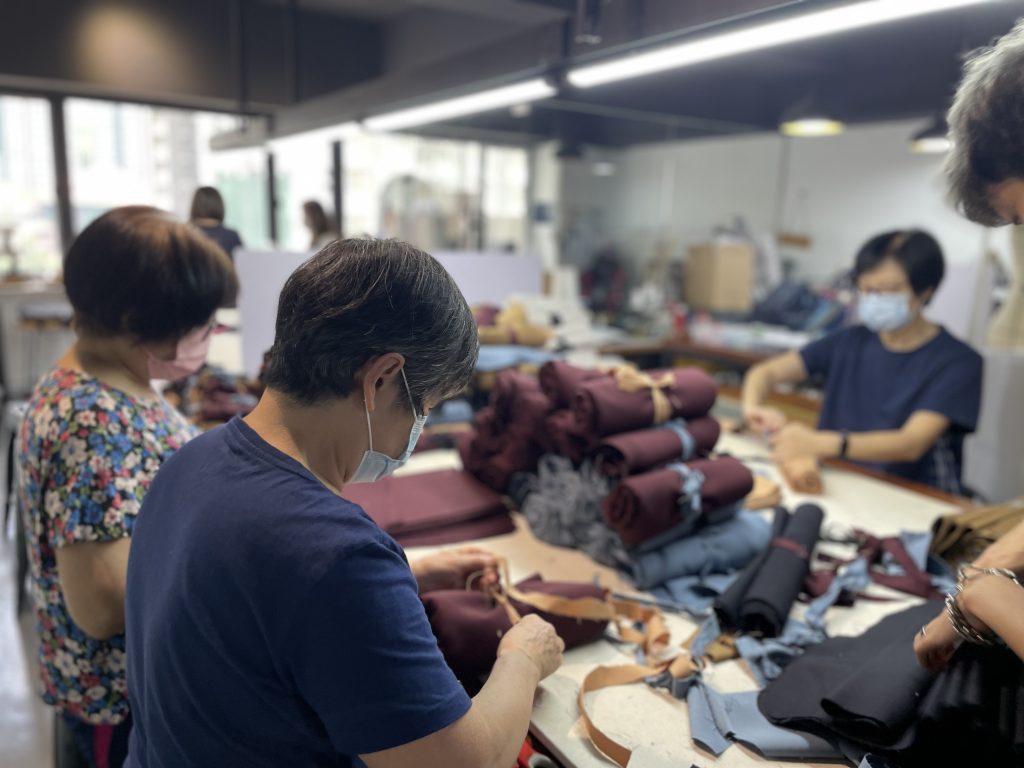
Demonstrating progress with a successful business case
Vickie also highlighted the importance of measurable results, especially during a time when news about fashion brands being accused of greenwashing is not new. “Measurable, quantifiable results speak for themselves,” said the designer-cum-entrepreneur. “We were lucky to have been granted an evaluation report after the successful application of the SIE Fund. It’s helpful in any business development scenarios.” V Visionary is going to apply for the B Corp Certification, too. “B Corp is a designation that a business is meeting high standards of verified performance on social inclusion and sustainability. It’s well recognized internationally – though the uptake in Hong Kong is slowly increasing – so it really helps especially when you are talking to big companies and foreign buyers.”
When it comes to bringing real change to the industry, preparation in advance and adaptability are equally important, too. “I think advocating via the B2B channel is more efficient, given that you’d got the approval directly from the decision makers (management) and then go top down; but do bear in mind that every brand is different,” continued Vickie. “Some companies may care most about the brand image, while others may allow co-creation and mutual learning. They do cutting-edge innovation? Then try to add value to the project from other aspects, say, your community network. Be water, and demonstrate how the potential client could benefit from your ideas and solutions.”
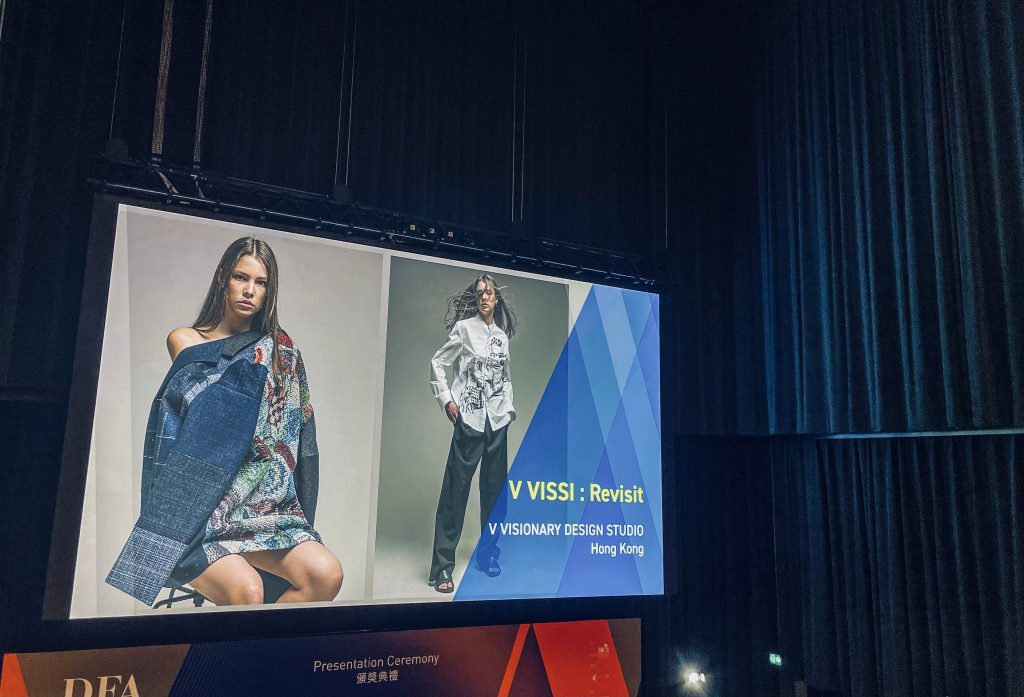
| V Visionary is one of the recipients of the Merit Award in the SMEs Sustainability Leadership Recognition Scheme 2021 cohort. The Scheme is part of the Partnership for Sustainability Leadership in Business (PSLB), which is initiated by the Centre for Civil Society and Governance, The University of Hong Kong (CCSG), and supported by The Hongkong Bank Foundation. |



